I’ve been wanting to do this for a while. Here are all the numbers that I think matter about housing in Chapel Hill:
In 2021, Council received a report estimating that we need ~485 units per year every year between 2020 and 2040 in order to keep the current jobs/housing ratio:
- 440 of those are a mix of workforce and seniors
- 45 are student units.
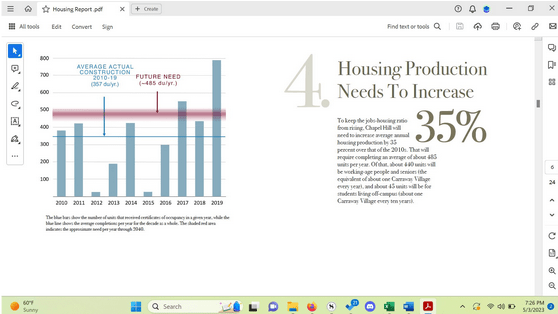
In other words, if we are building fewer than an average of 485 units/year, the housing market in Chapel Hill will actually get even worse.
485 units * 20 years = 9,700 units.
Going extremely back of the napkin, let’s assume that balances out to 2.5 people per unit, that’s 24,250 new residents in town.
Thanks to the intrepid blogbloggers, we know there are between 1125 and 1292 units in the housing pipeline in Chapel Hill. Only some of them will actually be completed this year.
The reality of development is that projects come in fits and bursts; something is always being built, but some years you’ll get a lot of units, some years you won’t.
485 units/year isn’t a radical increase in growth. Look:
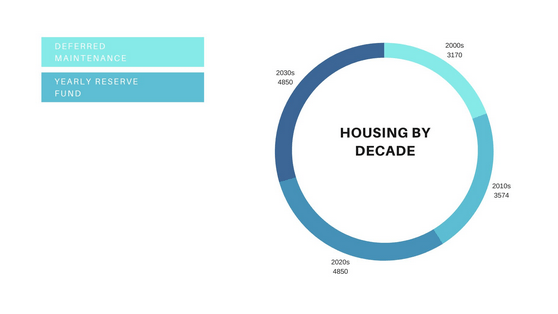
Now, some people want to know: what about UNC students?
The university has ~30,000 students to house. Here’s where they end up:
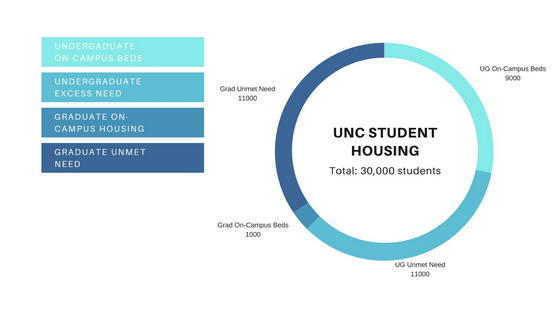
10,000 of them end up on campus. Nearly all of those are freshman and sophomores, plus a handful of juniors and seniors. 10% of them are grad/prof students.
The university is at 96.5% occupancy and is likely to make it up to 98% next year.
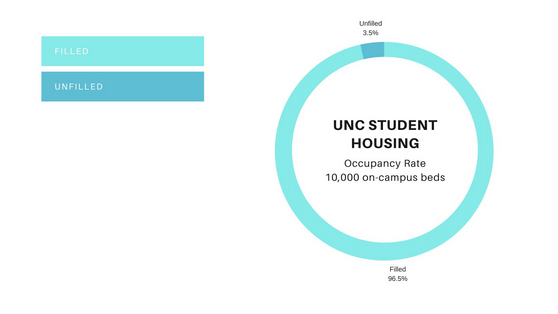
A lot of folks (including me!) would like to see UNC house more students on campus. But it’s fiscally impossible. This chart shows why:
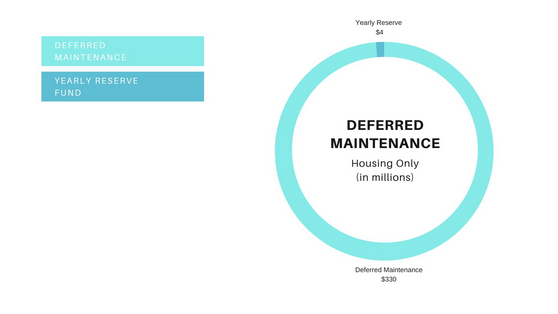
Every year the buildings get older and more problems crop up. The university is only permitted to spend money derived from student rents on renovation and repair projects, which keeps the reserve contribution to about 4 million.
But that gets functionally eaten every year by miscellaneous project. For the foreseeable future, the university has to spend money just to keep dorms operational. Without a huge cash infusion from the state, no new dorms.
Believe it or not, the state has actually ramped up contributions to deferred maintenance on campus to the double-digit millions. That’s great! Except we’re a billion dollars in the hole.
OK – setting aside the UNC rabbit hole, let’s review.
Based on the information we – and Council – have to work with, the town needs 9,700 units in the next twenty years to keep the housing market from getting worse.
Basically everyone agrees that we want those units to be affordable. Right now around 15% of the units that get built as part of multi-unit projects end up being affordable.
I’ve never seen a more accessible description of the constraints imposed on affordable housing than this thread by Durham City Council Member Jillian Johnson.
(If you didn’t already know, the Town of Chapel Hill has an awesome affordable housing dashboard.)
Folks complain that we’re always building housing and never working on parks. And it’s true: our parks were behind in 2013, back when this comprehensive plan was released, and that gap has just grown.
But we’re also behind on staff pay, vehicles and facilities for police and firefighters, and our connectivity plans (did you know it costs about $1.5/mile to build multi-use paths? it’s expensive!)
And I might add that the 2022-2023 budget shows we’re spending twice as much town money on parks as on housing!
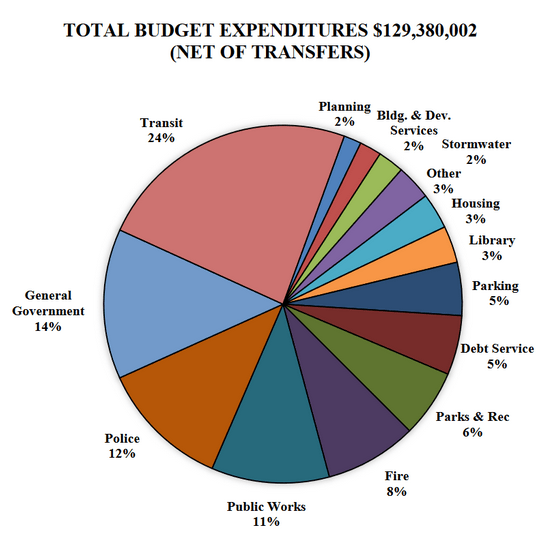
I want to have it all, I really do. But money matters. We have to make choices about what we want. Connectivity? It’s gonna take a bond. Parks? Bond. There’s only so much grant money out there we can get.
